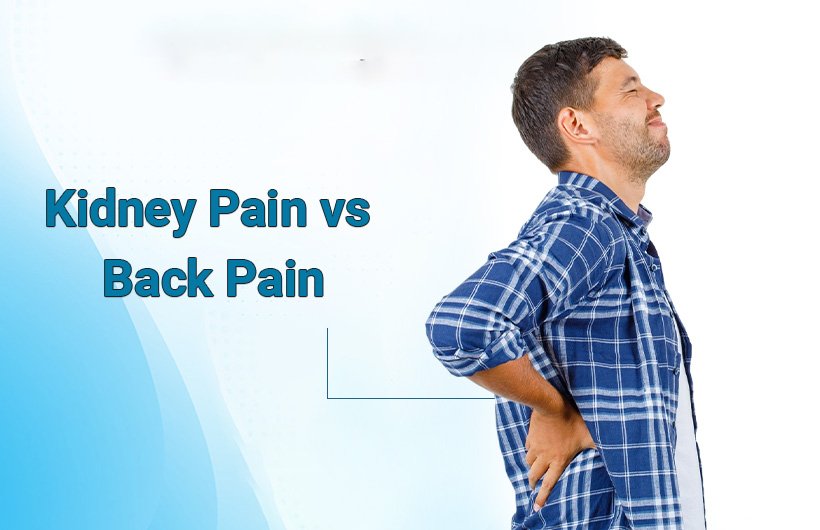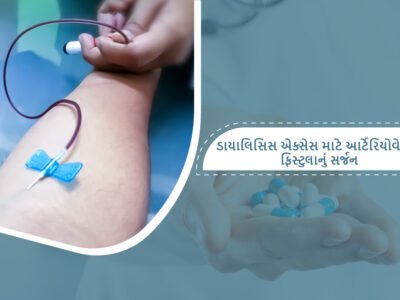Back pain is very common, but not all pain in your back comes from the spine or muscles. Sometimes, your kidneys might be the real reason for the discomfort. Knowing the difference between kidney pain and back pain is important, not just to feel better, but also to protect your health.
In this simple guide, we’ll explain the symptoms, causes, and warning signs that can help you tell the difference between the two. This way, you’ll know when it’s time to see a doctor and get the right treatment.
Learning the Necessities: Kidney pain vs back pain
What is kidney pain?
Kidney pain usually happens when there’s a problem with one or both kidneys. Your kidneys are small, bean-shaped organs located just under your rib cage, on either side of your spine. This kind of pain can be a sign of issues like a kidney infection, kidney stones, or other problems.
- Where it hurts: You may feel a deep pain on one or both sides of your lower back, around the side area just below the ribs.
- How it starts: Pain can come on suddenly, especially with kidney stones.
- Type of pain: It can be dull and constant or sharp and intense, depending on the cause.
What is Back Pain?
Back pain is commonly linked to issues with the spine, muscles, ligaments, or nerves in your back.
- Location: It often starts in the lower back and can spread across the entire back.
- How it starts: It usually develops slowly over time, often due to poor posture, heavy lifting, or muscle strain.
- Type of pain: It may feel like a dull ache or become sharp, stabbing, or shooting, especially while bending, sitting, or moving.
Key Differences Between Kidney Pain vs Back Pain
Knowing the difference between kidney pain and back pain can help you identify what your body is trying to say. Here’s a simple comparison:
Location of Pain
- Kidney Pain: Felt deeper inside the body, usually under the ribs or on one or both sides of the lower back (flank area).
- Back Pain: Usually felt across the lower back, directly over the spine or muscles.
Type and Intensity of Pain
- Kidney Pain:
- Can be dull and throbbing or sharp and stabbing.
- It may occur on one or both sides.
- Back Pain:
- It can range from mild discomfort to intense pain.
- Often worsens with movement, lifting, or twisting.
Other Symptoms
- Kidney Pain May Include:
- Fever or chills
- Nausea or vomiting
- Blood in urine
- Painful or frequent urination
- Cloudy or foul-smelling urine
- Back Pain May Include:
- Muscle stiffness or tightness
- Pain that gets worse with activity
- Numbness or tingling (if nerves are involved)
- Muscle spasms
Pain Triggers and Movement
- Kidney Pain:
- Usually not affected by posture or movement
- Can be triggered by dehydration or urinary tract infections
- Back Pain:
- Worsens with poor posture, sitting, bending, or lifting
- Often relieved by rest, sleep, or stretching exercises
What Causes Kidney Pain?
Kidney pain usually means something is wrong with your kidneys. Here are common causes:
- Kidney Stones: Sharp, cramping pain that comes and goes.
- Kidney Infection (Pyelonephritis): Comes with fever, chills, and painful urination.
- Polycystic Kidney Disease: A hereditary condition where fluid-filled cysts form in the kidneys.
- Urinary Tract Blockage: Caused by kidney stones or structural issues.
- Injury: Trauma to the back or side can damage the kidneys or cause internal bleeding.
What Causes Back Pain?
Back pain is often due to problems with muscles, bones, or joints. Common causes include:
- Muscle or Ligament Strain: Lifting something heavy or moving awkwardly.
- Herniated Disc: A slipped disc pressing on a nerve, causing sharp, shooting pain.
- Spinal Arthritis: Inflammation in the spine causes stiffness and pain.
- Scoliosis or Spine Issues: Curved or abnormal spine shape.
- Poor Posture or Inactivity: Sitting too long or not exercising regularly.
When Should You See a Doctor?
Not sure if your pain is from your kidneys or your back? Watch out for these serious signs.
See a doctor right away if you have:
- High fever or chills
- Blood in your urine
- Pain with vomiting
- Trouble peeing or dark-colored urine
- Swelling in your face, ankles, or feet
Don’t ignore these symptoms. Waiting too long can lead to serious problems like kidney failure or infection.
It’s better to be safe and get a proper check-up instead of guessing.
Diagnosis & Treatment: Kidney Pain vs Back Pain
How Doctors Find the Cause
Doctors use a few tests to figure out whether your pain is from the kidneys or the back:
- Physical Exam: Checking where the pain is and how you react.
- Urine Test: To look for infection or blood in the urine.
- Blood Test: To check how well your kidneys are working.
- Ultrasound or CT Scan: To find kidney stones or structural issues.
- X-ray or MRI: To check for spine problems like slipped discs or arthritis.
Treatment Options
If the Pain is from the Kidneys:
- Infections: Treated with antibiotics.
- Kidney Stones: Pain relief medicine is given.
- Large Stones: May need more fluids, medicines, or procedures like lithotripsy (stone-breaking treatment).
If the Pain is from the Back:
- Physical Therapy: Helps strengthen back muscles.
- Anti-inflammatory Medicines: Reduce swelling and pain.
- Hot or Cold Packs: For quick relief.
- Surgery: Only for severe or long-lasting problems.
Conclusion: Listen to Your Body – Don’t Ignore the Pain
Understanding the difference between kidney pain and back pain can help you take the right action at the right time. While back pain is often due to posture, strain, or spinal issues, kidney pain may signal serious conditions like infection or stones that need immediate attention.
If you’re unsure or experiencing symptoms like fever, blood in urine, or persistent pain, don’t wait, consult a kidney specialist. For expert care, reach out to a trusted kidney specialist in Ahmedabad who can guide you with proper diagnosis and treatment.
Your health matters act early, stay informed, and get the right care when needed.


